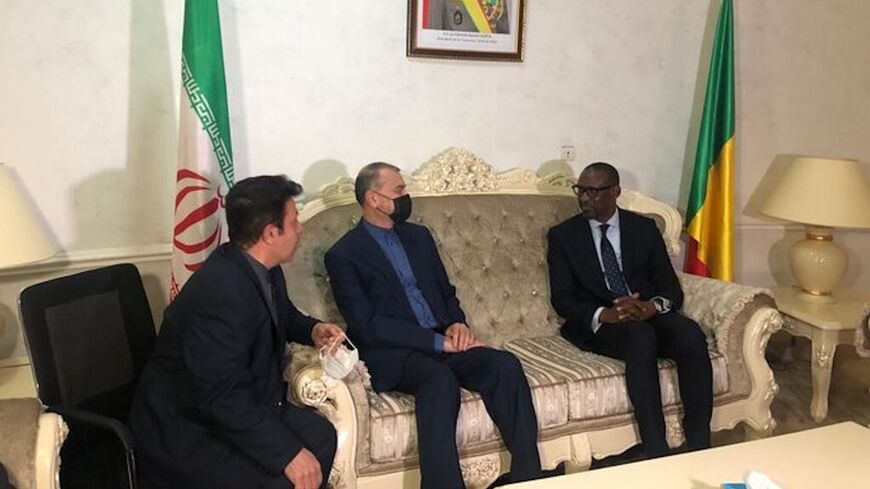Iran's Foreign Minister Hossein Amir-Abdollahian announced that his country was ready to open a high-tech fair in the Malian capital, Bamako, where Iran's latest knowledge-based advancements will be put on display.
Amir-Abdollahian was sitting next to his Malian counterpart, Abdoulaye Diop, as private sector economic actors from both sides formed their first-ever joint cooperation committee.
The Iranian minister's African visit will also take him to Tanzania later in the week. "Africa and Mali are of a significant status in the Iranian government's foreign policy," Amir-Abdollahian declared upon arrival where he spoke of his "confidence about a new chapter in fresh Tehran-Bamako ties."
Hours before Amir-Abdollahian's departure, Foreign Ministry spokesperson Nasser Kanani was addressing reporters in Tehran for a briefing on the fate of the Iran nuclear deal known as the Joint Comprehensive Plan of Action (JCPOA). Tehran has already replied and enclosed "considerations" to a European Union-drafted proposal. EU foreign policy chief Josep Borrell has described the Iranian response as "reasonable." The same package is awaiting an answer from Washington, where it is under review.
'Once bitten, twice shy'
At the Tehran press conference, Kanani pointed out Iran's "plan B" in the event of the failure of the JCPOA, noting that Tehran will put more "seriousness" into its policy of expanding economic ties with other nations and will not hinge its economy upon negotiations with the United States. "We won't be bitten twice from the same hole," he said, using a common Persian expression to highlight Iran's disappointment with the economic dividends promised by the JCPOA.
Yet despite a perceived delay in Washington's response to the EU proposal, some Iranian media outlets have in recent days been speculating that an agreement could be imminent. Iran's typically turbulent foreign exchange market has also been reacting positively. The national currency, the rial, has regained some 10% of its lost value against the US dollar over the past week.
Yet cynicism continued to characterize the view of the hardcore sectors of the conservative camp. "No sanctions will be removed by the JCPOA," wrote Kayhan, the paper known for its scathing anti-Western editorial line. Kayhan downplayed the EU proposal and questioned the European parties for serving Washington's interests, likening them to "pets trained by the United States."
It further underlined the ongoing European inflation and fuel crisis, and traced Europe's push for the revival of the JCPOA to its need for Iranian energy at a moment when the continent is "eating mouldy food" and "burning firewood" as fuel.








